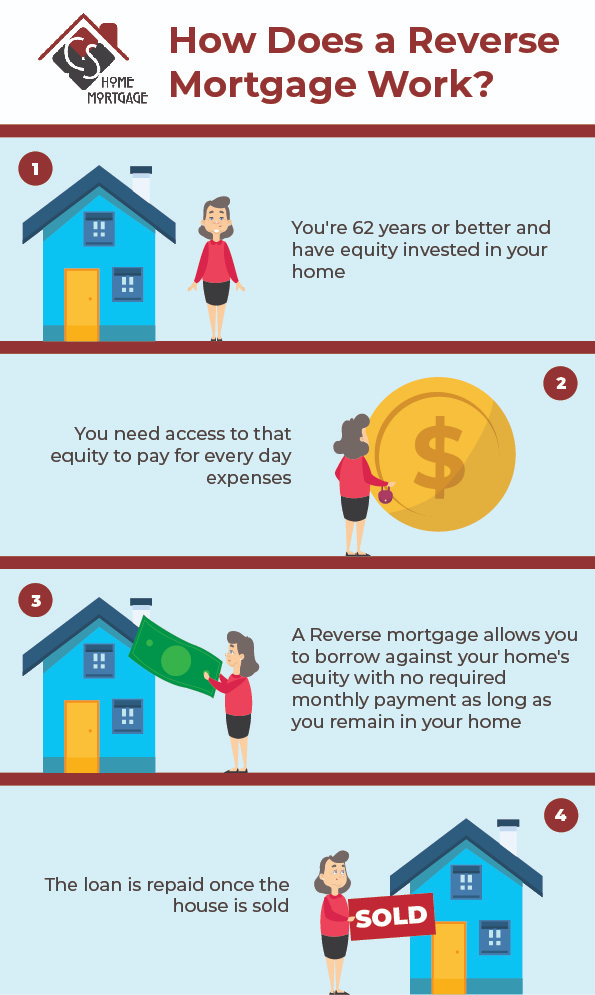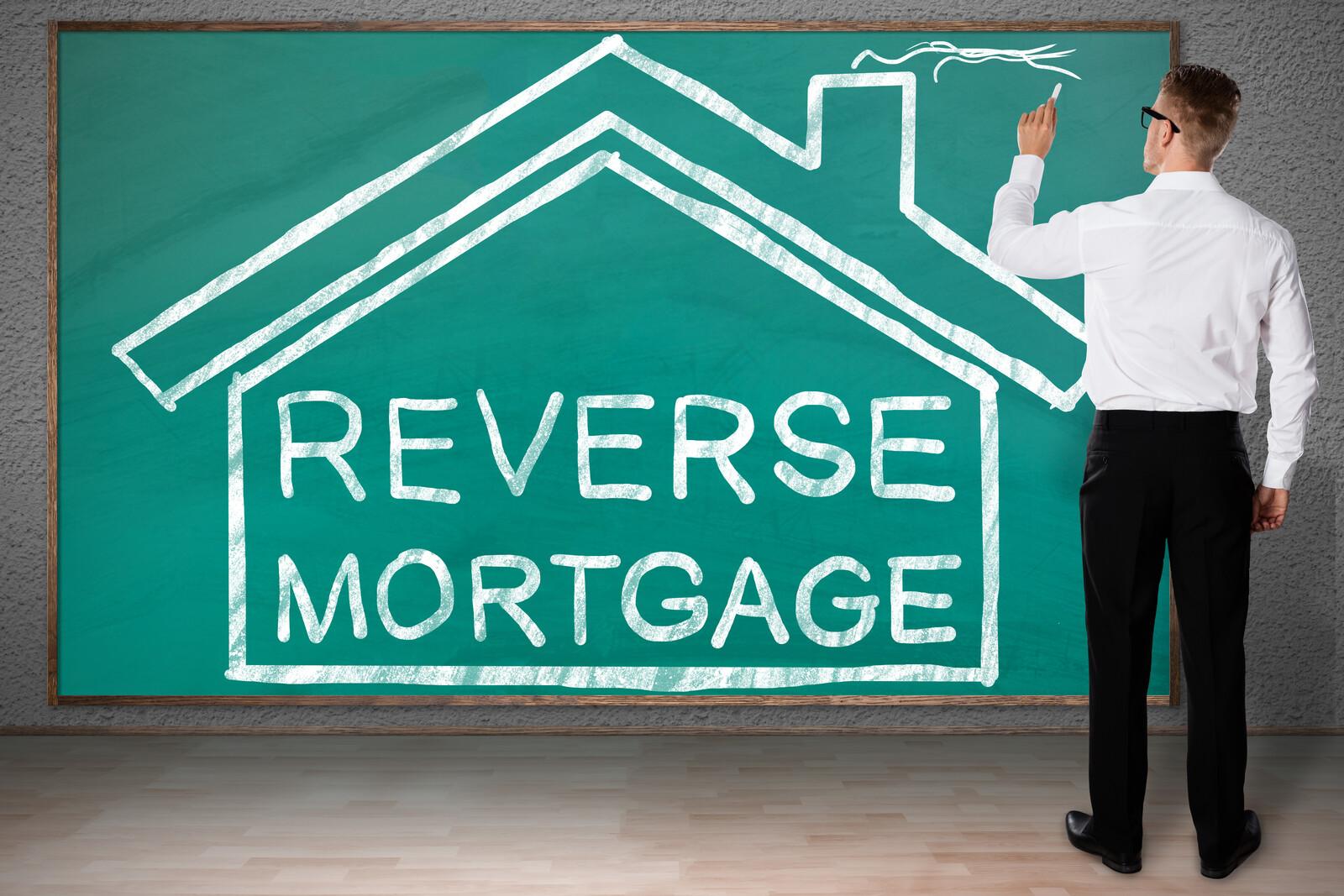Can You Purchase Reverse Mortgage as Part of Your Financial Strategy?
Can You Purchase Reverse Mortgage as Part of Your Financial Strategy?
Blog Article
Unlock Financial Flexibility: Your Overview to Acquiring a Reverse Mortgage
Understanding the intricacies of reverse mortgages is important for homeowners aged 62 and older looking for economic liberty. As you consider this choice, it is important to grasp not just how it functions yet also the implications it might have on your monetary future.
What Is a Reverse Home Loan?

The basic allure of a reverse home mortgage depends on its possible to enhance monetary adaptability during retired life. Homeowners can make use of the funds for various objectives, including medical costs, home improvements, or daily living costs, therefore giving a security internet throughout a critical point of life.
It is vital to comprehend that while a reverse home mortgage enables increased money flow, it likewise decreases the equity in the home with time. As passion builds up on the superior car loan balance, it is crucial for prospective consumers to meticulously consider their long-term financial plans. Consulting with a monetary consultant or a reverse home loan expert can supply useful understandings into whether this choice aligns with an individual's financial objectives and conditions.
Qualification Needs
Comprehending the eligibility requirements for a reverse mortgage is vital for homeowners considering this financial option. To qualify, candidates need to go to least 62 years old, as this age standard enables senior citizens to access home equity without monthly home mortgage payments. In addition, the home owner needs to occupy the residence as their key house, which can include single-family homes, particular condos, and manufactured homes fulfilling certain standards.
Equity in the home is one more important need; house owners typically need to have a substantial amount of equity, which can be determined with an appraisal. The quantity of equity available will directly affect the reverse home loan amount. Applicants need to show the capability to keep the home, including covering home taxes, house owners insurance, and maintenance prices, ensuring the residential property continues to be in good condition.
In addition, possible borrowers have to undertake a monetary assessment to review their revenue, debt background, and overall financial scenario. This evaluation assists loan providers identify the candidate's capacity to meet continuous commitments associated with the residential property. Fulfilling these needs is vital for protecting a reverse home mortgage and making sure a smooth economic transition.
Benefits of Reverse Home Mortgages
Many advantages make reverse home mortgages an appealing alternative for seniors looking to boost their monetary flexibility. purchase reverse mortgage. One of the primary advantages is the capacity to transform home equity right into money without the requirement for regular monthly home loan repayments. This function allows seniors to access funds for numerous demands, such as medical expenses, home improvements, or daily living prices, therefore reducing economic anxiety
Furthermore, reverse home loans provide a safety web; senior citizens can remain to stay in their homes for as lengthy as they satisfy the lending requirements, fostering security throughout retirement. The proceeds from a reverse home mortgage can likewise be used to postpone Social Safety benefits, potentially resulting in greater payouts later on.
Moreover, reverse mortgages are non-recourse lendings, suggesting that debtors will never ever owe more than the home's worth at the time of sale, protecting them and their successors from financial responsibility. Finally, the funds received from a reverse home loan are generally tax-free, including another layer of monetary alleviation. On the whole, these benefits placement reverse mortgages as a functional service for senior citizens seeking to enhance their economic situation while preserving their valued home environment.

Costs and costs Included
When thinking about a reverse home mortgage, it's necessary to understand the different expenses and costs that can influence the total economic picture. Understanding these expenses is critical for making an informed decision about whether this financial product is right for you.
One of the primary costs associated with a reverse mortgage is the origination fee, which can vary by lender but typically ranges from 0.5% to 2% of the home's appraised value. Additionally, homeowners should prepare for closing prices, which might consist of title insurance, assessment costs, and credit record fees, commonly amounting to a number of thousand bucks.
One more substantial expenditure is home loan insurance costs (MIP), which secure the loan provider against losses. This fee is generally 2% of the home's worth at closing, with a continuous annual costs of 0.5% of the staying funding balance.
Lastly, try this website it is very important to think about ongoing prices, such as real estate tax, home owner's insurance coverage, and maintenance, as the consumer stays responsible for these expenditures. By thoroughly evaluating these expenses and fees, home owners can better evaluate the economic ramifications of pursuing a reverse home loan.
Actions to Get Going
Getting started with a reverse home mortgage involves a number of vital actions that can aid improve the procedure and guarantee you make informed decisions. Analyze your financial situation and establish if a reverse mortgage aligns with your long-lasting objectives. This consists of reviewing your home equity, current debts, and the requirement for extra earnings.
Following, study numerous lending institutions and their offerings. Look for reputable organizations with favorable evaluations, clear cost frameworks, and affordable passion prices. It's necessary to contrast terms to locate the most effective suitable for your demands.
After choosing a lender, you'll require to finish a thorough application procedure, which commonly calls for documents of earnings, possessions, and residential property information. Participate in a counseling session with a HUD-approved counselor, that will certainly supply insights right into the effects and obligations of a reverse home mortgage.
Verdict
In conclusion, reverse home mortgages present a sensible choice for elders seeking to boost their financial security during retired life. By transforming home equity into obtainable funds, property owners aged 62 and older can resolve various economic needs without the pressure of these details month-to-month repayments.
Recognizing the complexities of reverse home loans is vital for house owners aged 62 and older seeking monetary liberty.A reverse mortgage is a monetary item designed mostly for home owners aged 62 and older, allowing them to convert a part of their home equity click here to find out more right into cash - purchase reverse mortgage. Consulting with a reverse mortgage or a monetary expert specialist can offer useful understandings right into whether this alternative aligns with an individual's monetary goals and scenarios
In addition, reverse mortgages are non-recourse fundings, meaning that borrowers will never owe more than the home's value at the time of sale, safeguarding them and their beneficiaries from monetary obligation. Generally, these advantages setting reverse home loans as a functional option for elders seeking to improve their financial situation while maintaining their valued home atmosphere.
Report this page